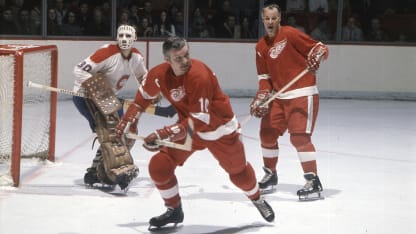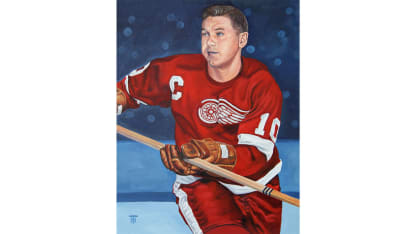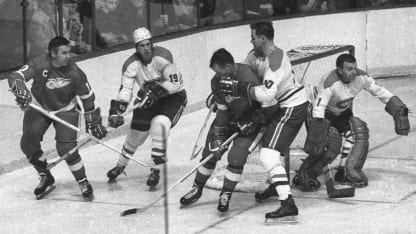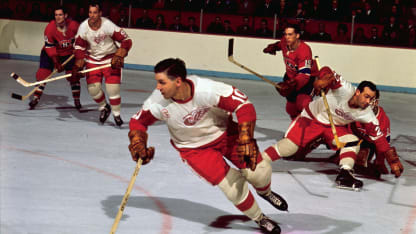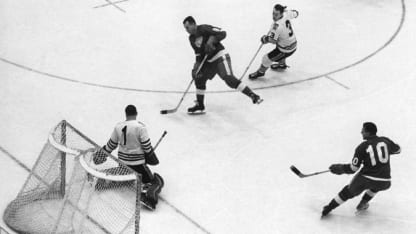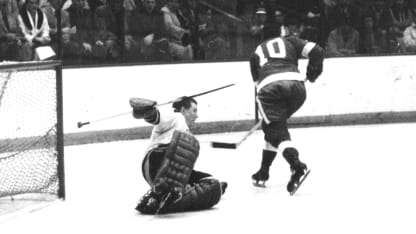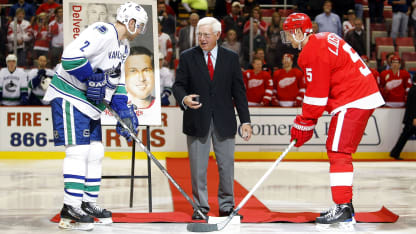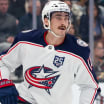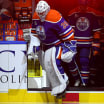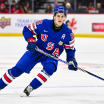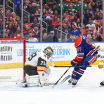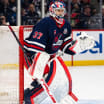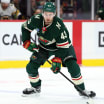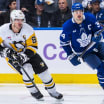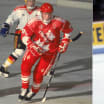But "Fats" brought much more to Detroit than clean play. He was an exceptional skater, efficient and fluid, who never tired and could react instantly in any direction to a change in the flow of play. He constantly circled to get open for a pass or to zero in on an opposing puck carrier. "There is no wasted motion," said Garry Unger, when he was a Red Wings center in the late 1960s. "I don't think he even sweats out there."
"I don't like to play on the same line as 'Fats'," Howe half-jokingly told Hockey Illustrated in 1969. "He is such a smooth skater with that almost delicate toe-dancing style of his that he is worth watching. I can only watch him when he is playing on a different line than I am."
Of course, Howe actually loved playing with Delvecchio, who assisted on more of his regular-season goals than any other player (210). No one else is close; Lindsay is second with 147. No. 9 and No. 10 were frequently linemates, beginning in Delvecchio's second full season, on the "Production Line" with Lindsay (Delvecchio replaced Sid Abel, who became player/coach of the Chicago Black Hawks, as they were then known, in 1952). Howe and Delvecchio were also regularly together on the power play and penalty kill.
"I can thank Alex for a lot of good years," Howe told Kulfan. "We read each other very well. I played with some great hockey players but none came to his order."
With Howe, Delvecchio could throw the puck into an area, if necessary, and Howe would get it. But when Frank Mahovlich was traded to Detroit from Toronto on March 3, 1968, and became the left wing on the "Production Line II," the passes had to land right on the tape of the stick of "The Big M" while he was in full flight with his big, sweeping strides. "It was tough for centers to judge where he'd be for a pass," teammate Bruce McGregor said. "Alex would hit him almost every time, right on the money. Alex was the best center man at making consistently perfect passes that I've ever seen."
With Howe and Mahovlich as his wings, Delvecchio had his best season in 1968-69, with 58 assists, fourth best in the NHL, and 25 goals. So did Mahovlich, who scored 49 goals. And so did Howe, with a career-best 103 points.
"Alex was one of those players who made people around him better," teammate-turned-broadcaster Mickey Redmond told Kulfan. "He was an extremely unselfish player. The game slowed down for him. He was a top-notch, excellent passer."
